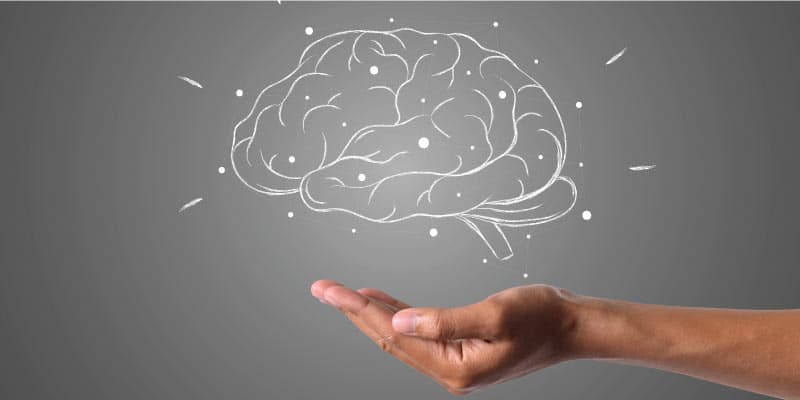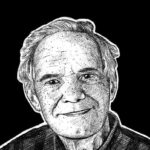Cognitive Learning Theory

Cognitive Learning: in this article the Cognitive Learning Theory will be explained in a practical way. It covers what cognitive learning theory is, what its key factors are, what the main components of cognitivism are, what the stages of knowledge development are, what the current affairs of cognitive learning are in psychology and what the benefits of the theory are.
After reading this article, you will understand the basic concepts of the process and the interpretation of information obtained through the experiences that are lived and how these are developed by the human being. To deepen your understanding of Cognitive Learning Theory, you must first understand what it is and what its theoretical background is. Enjoy reading!
What is Cognitive Learning Theory?
Cognitivism groups the theories that focus on the study of the human mind for the understanding of the processes, storage and interpretation of the information that the human being acquires. The objective of cognitivism is to understand how the human mind is capable of thinking and learning.
Cognitivism is linked to learning as it has some categories of development that are the acquisition and categorization of new information. This information is obtained through interaction with reality through the senses. This is why learning is so important, since it is an active process of appreciation and interpretation by people in the development they have with the experiences and the environment they are in.
In the study of cognitivism we find the processes of language, perception, memory, reasoning and problem solving in the experiences that human beings live.
Main exponents of cognitivism
There are two main figures in literature on cognitivism. These are Jean Piaget and Lev Vygotski, among other authors who argue that human beings build their knowledge through stages with the interaction of experiences with their environment or objects, being this by stages which would be the learning processes.
According to Jean Piaget, human beings experience cognitive learning processes in all stages from childhood to maturity.
According Lev Vygotski, knowledge is not constructed individually, but interaction with people is necessary for the construction of knowledge where language is the key factor.
After understanding a little more what cognitivism is, it will be possible to understand in a simpler way what the Theory of Cognitive Learning is.
What is the Cognitive Learning Theory?
As identified in the previous explanation, the Theory of Cognitive Learning merges with cognitivism and learning to explain the processes of knowledge and the memorization of such knowledge.
This theory highlights the importance of learning and how this process can be controlled for life. Since cognitive learning is a learning process that continues to be present in the different stages of life, it’s a memorization that is valid if the reception and processing of information is controlled in an adequate way, which results in knowledge.
Key factors of Cognitive Learning
In this theory, the following key factors play an important role.
Understanding
Understand why you want or need to acquire certain information.
Memory
It is the relationship between the knowledge acquired and the experiences lived.
Application
It is the application of knowledge in the different stages of life in which the person is, where this knowledge will have an added value for the development of skills and resolution of conflicts that arise.
This theory does not consider implicit learning, which is the learning of complex information unintentionally. It does also not consider any style of learning or approach to learning, like collaborative learning.
Piaget’s Theory of Cognitive Learning
Jean Piaget was a psychologist of Swiss origin who developed Piaget’s Theory of Learning, also called the Theory of Cognitive Development, or Social Cognitive Theory. The theory deals with the nature and development of human intelligence. Human beings gradually acquire knowledge in the stages of development. These stages start from childhood to adulthood.
According to Piaget, cognitive development and learning involves continuous reorganisation of the mental processes of biological maturation and experience with the environment.
He said that children build and understand the world according to what they experience with their environment and then associate this with their ideas (thoughts).
The psychology of learning is linked through mental development, through language, play and understanding.
The Concept-Scheme
This concept used by Piaget is cognitive organisation. The scheme is a mental structure of thoughts or behaviours that can relate categories at certain times or stages of life that change with age.
With the different stages new knowledge is developed and these patterns can be modified with the information that is acquired depending on the stage in which the human being is. For this reason, he proposes that learning is connected to adaptation.
Learning to adapt
Learning is adapting to new things. This theory explains adaptation through the processes of assimilation and accommodation.
Adaptation
The ability to adjust mental structures to the demands of the environment through experience. Adaptation consists of two complementary processes: assimilation and accommodation.
Assimilation
Assimilation is the process of interpretation of the external world based on current schemes. Adopting new knowledge of the environment in order to connect it to the structures you have.
Accommodation
Reorganization of mental structures in the creation of a new scheme or modify it because there is a new object or situation in the environment.
The result of these two categories is the balance by which, through assimilation and accommodation, the human being is able to cognitively restructure learning during each stage of development according to Piaget.
If this is not linked to each other, an imbalance will occur which leads people to learn from experience and results in the learning processes that lead to knowledge.
Stages of knowledge development
Cognitive development is a progressive reorganization of mental processes that are in the developmental stages of biological maturation that humans have. This biological maturation is connected to the experiences that are lived through the stages.
These stages of development have qualitative changes and have two important characteristics: Invariable characteristic, this means that it does not disappear in any of the developmental stages (age) and the second is that it is universal that is present in children anywhere in the world.
1. Sensory-motor stage
From birth to 2 years, the infant’s reacts to objects. The object is the main protagonist in this stage because the mental scheme that produces the object, even though the object is not in sight of the child but he has already made several interactions with it, makes it have a mental presence in the infant.
2. Pre-operational stage
From the age of two to seven. The child begins to reflect on non-perceptible events such as playing with fictional roles or connecting symbols.
At this stage the ability to manipulate information and draw conclusions is not gained.
3. Stage of concrete operations
From 7 to 12 years old the child discovers that he can use his intuition to relate to logic and draw conclusions from concrete situations he has experienced.
4. Stage of formal operations
From 12 to 15 years old, this is like the last stage of cognitive development. Here he begins to elaborate hypotheses and to doubt about the information he has.
At this stage he can draw conclusions and observations from the situations he has experienced and also manipulate the information he receives from the environment.
For Piaget, the stages of knowledge are separated by time. According to the moment in which the human being is in his process of growth, he can have a vision of the environment and the interaction with this environment results in thought patterns.
Piaget focused on the early years of children’s lives in the psychological and pedagogical field, however, it provided the basis for cognitive development and appropriate study in the psychological field.
Cognitive Learning, current affairs
The theory of Cognitive Learning is vital in psychology, which is divided into two categories:
Social-Cultural Cognitive Theory, including an example
This category focuses on the importance of the environment and the interaction with other people results in interpretation. Social external factors are the basis for the development of knowledge for the internal part of cognitive learning.
Example: a leader can lead to identifying the outcome of the behaviour by showing his team that when they follow the instructions he says correctly there will be a reward for each member at the end of the effort. This is motivation and the team members will continue with that social behaviour.
An important factor in this theory is learning by observation. The process of learning desirable and undesirable behaviours of others through observation.
These people can be teachers, managers, leaders, among others who influence behaviour.
Cognitive Behavioural Theory, including an example
This theory focuses on mental processes as thoughts and interpretations according to life experiences. The connection of thoughts, emotions and behaviours go hand in hand to give learning responses, equal to knowledge.
Cognitive Behavioural Theory forms self-concepts that positively or negatively affect the behaviour you have in a life situation.
Example: a person has to carry out a responsibility that he/she does not like and that he/she finds difficult to do, in a matter of seconds the person believes that it is something complicated and in some cases even impossible. For this reason the person may feel with a negative attitude towards those specific responsibilities so that his/her performance will be regular.
Cognitive learning strategies in the organisational and personal sphere
Bringing Cognitive Learning Theory to the corporate arena can be beneficial. Employees are also learners when they must receive training or new responsibilities that will lead to new experiences as a result.
These new experiences will result in new skills according to the environment in which they happen. Motivation on the part of the leader (teacher) will influence the employee’s behaviour.
For this reason the workplaces must be modified so that the staff can train themselves. The environment or setting must be conducive to construct clear and accurate training programs. Setting up a space where only training is received can be a strategy for learning about the environment.
Also, the pedagogy and new digital training tools to ensure that the information to be shared is more didactic and enjoyable for employees. With this, the schemes that the employees will train with respect to the way in which the information is delivered will be able to repeat the success of the knowledge as a result of the learning.
Benefits of the Cognitive Learning Theory
Cognitive learning helps to enhance memory and retention of information with existing ideas that are already in each person.
Examples of benefits are:
- Improving the understanding of what should be done at work. Learning by doing, this is the reflection of experience as a developer of knowledge.
- Problem solving, conflict resolution in the workplace.
- Confidence, cognitive learning can give you more confidence in handling the different situations that arise at work. This makes you learn new things in a short time.
- Continuous learning, cognitive skills can connect knowledge from the past that can link and modify new learning for positive benefit.
Now It’s your turn
What do you think? Is it possible to carry out psychology and pedagogy with learning processes in companies? Can the theory of cognitive learning help to solve conflicts in companies? Do you agree with how Jean Piaget proposes the importance of the development of cognitive learning in the stages of development? Have you ever considered to apply these theories in your thought processes? Do you have anything to add or any suggestions?
Share your experience and knowledge in the comments box below.
More information
- Tennyson, R. D., & Rasch, M. (1988). Linking cognitive learning theory to instructional prescriptions. Instructional Science, 17(4), 369-385.
- Fox, S. (1997). Situated learning theory versus traditional cognitive learning theory: Why management education should not ignore management learning. Systems practice, 10(6), 727-747.
- Efland, A. D. (1995). The spiral and the lattice: Changes in cognitive learning theory with implications for art education. Studies in art education, 36(3), 134-153.
- Merriam, S. B. (2004). The role of cognitive development in Mezirow’s transformational learning theory. Adult education quarterly, 55(1), 60-68.
How to cite this article:
Ospina Avendano, D. (2020). Cognitive Learning Theory. Retrieved [insert date] from Toolshero: https://www.toolshero.com/psychology/cognitive-learning/
Original publication date: 12/21/2020 | Last update: 07/29/2023
Add a link to this page on your website:
<a href=”https://www.toolshero.com/psychology/cognitive-learning/”>Toolshero: Cognitive Learning Theory</a>












